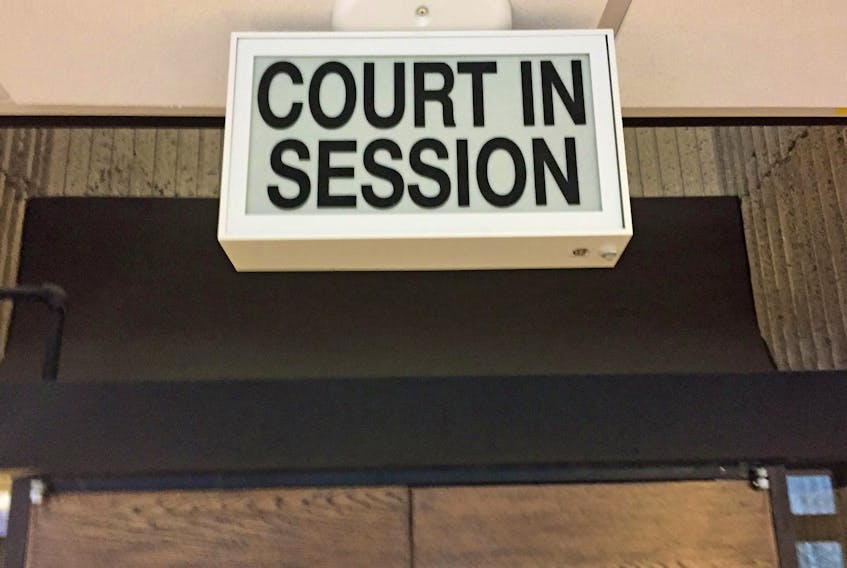As pressure builds on our health-care system, we should expect to see medical liability becoming more of a concern, a Halifax lawyer says.
“It’s not a legal excuse to say, I’m overworked and I’m too busy,” civil litigator Mike Dull said in a recent interview. “But we know on the ground, they are overworked and too busy. That’s a reasonable reason to not do certain things . . . , or see people in a timely way. But the law doesn’t afford them that defence.
“And so it would be more, I suppose, where the system is asking too much of its ER physicians and people are being injured as a result, there inevitably would be more successful medical malpractice claims being brought.”
Dull was responding to questions raised by an op-ed piece submitted by Dr. Chris Milburn to the Chronicle Herald earlier this month. Milburn expressed deep frustration with the increasing number of medical assessments that emergency doctors are asked to do on people in police custody in already overcrowded ERs.
Referring to the death of an inmate in a Halifax jail cell, and the subsequent conviction of two police officials, Milburn said doctors are taking on an unfair liability when it comes to assessing people in custody.
“One day, one of these criminals will have taken a drug, or drug combination, that will kick in later. He will have swallowed a baggie of cocaine that will later explode and cause an overwhelming overdose. One of these times, my luck will run out.
“Then they will come for me. So I’m speaking out about this now.”
While medical negligence cases regularly go to civil court, Dull said he’s never heard of an emergency doctor being charged with criminal negligence causing death.
“If a patient is literally dying in front of a doctor and they’re doing nothing, and they’re not busy," said Dull, who has worked in civil litigation for 12 years and now works with Valent Legal in Halifax. "And that doctor fails to provide any care and shows total disregard for the well-being of that patient, which I can’t imagine would ever be the case, then, sure, that doctor, just like all of us, can be found to be criminally negligent.”
"Where the system is asking too much of its ER physicians and people are being injured as a result, there inevitably would be more successful medical malpractice claims being brought."
- Mike Dull, civil litigator
The organization that helps most doctors in Canada in legal matters, the Canadian Medical Protective Association, did not provide a representative for an interview on the issue.
An article on the CMPA website said among emergency department cases it's closed in the previous five years, "diagnostic error was the most common criticism of emergency physicians made by peer experts reviewing the cases.
"Between 2013 and 2017, the CMPA closed 486 legal cases in which patients or families alleged there was a wrong, missed, or delayed diagnosis by an ED physician. In 251 cases, peer experts were critical of a physician’s diagnostic process in the ED — and nearly all these cases resulted in patient harm, including death. The most prevalent contributing factor in the CMPA legal cases, based on peer expert opinion, was a physician’s inadequate clinical assessment of a patient."
The article said emergency doctors strive to make the most likely diagnosis, "while frequently contending with complicating factors such as complex triaging, transitions in care, interruptions, crowding, and fatigue. An inadequate differential diagnosis, however, can mean a potentially serious condition is missed."
In a recent interview, Dr. Sam Campbell, emergency chief at the Halifax Infirmary, said doctors make “extremely risky” medical decisions on every shift because that’s the nature of emergency medicine.
When it comes to reducing those risks when making decisions about a patient’s treatment, sometimes doctors are hamstrung, Campbell said.
For example, even if he knows a patient could die if they left the emergency department, he doesn’t have the power to keep them in the hospital. But if that person is inebriated or mentally unstable, medical staff can declare them incompetent and keep them in the hospital against their will.
“Which is a medical/legal decision, you’re taking away someone’s right to do as they want,” he said. “It’s not a decision we take lightly, it’s not a decision that this guy’s drunk and he’s being a bit of an idiot and being abusive, never mind, I’ll just declare him incompetent; that’s not the way it works.”
Campbell noted his department has a team dedicated to psychiatric emergencies.
“It’s extremely busy and anecdotally, that is getting more busy. And the police are disproportionately more involved with those patients.”
RELATED









